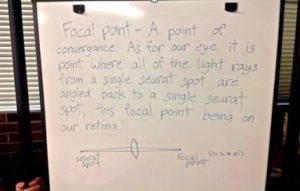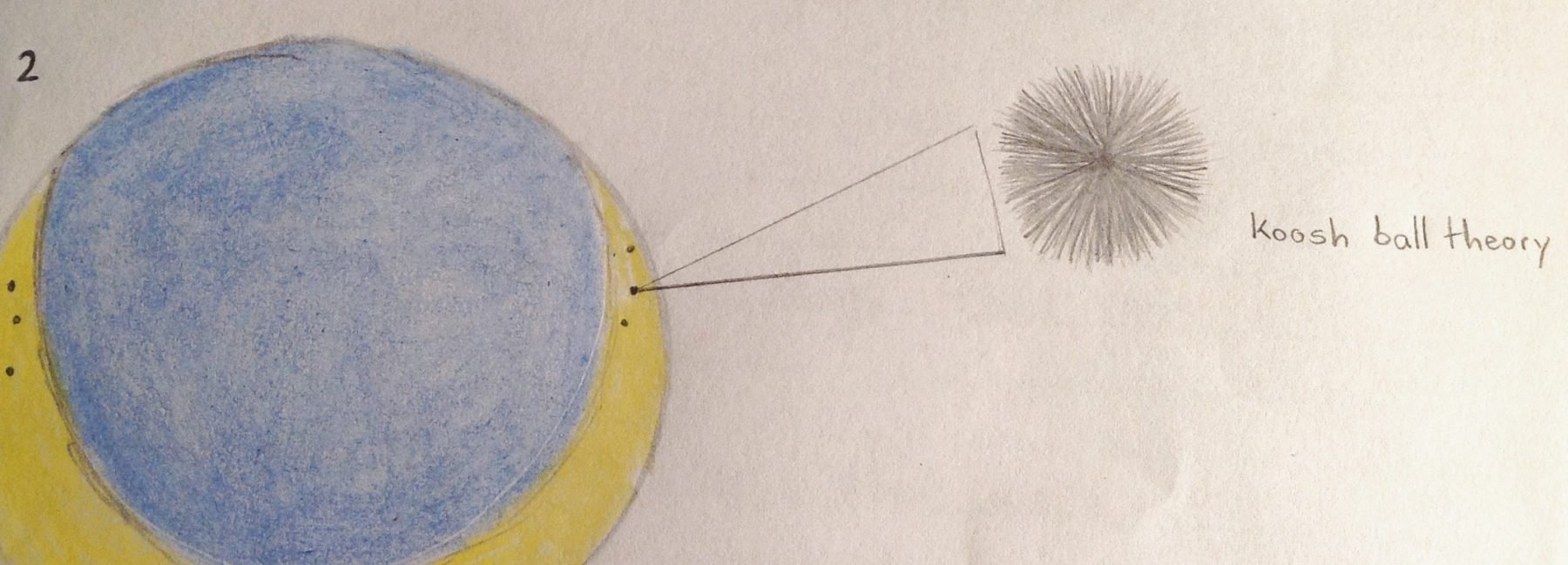 “In many science courses, students are taught definitions (e.g., velocity is a vector quantity that indicates the rate of change in position), and they interpret and employ these in developing arguments or solving problems. These definitions are presented as incontrovertible, if not altogether obvious, as if they were the launching point of inquiry rather than a hard-fought, hard-won product of scientific inquiry. And while much scientific research does proceed from well-defined terms (and knowing how to read, interpret, and use those terms is critical), this is hardly true for all research. Defining terms (e.g., species, acceleration, life, acid, planet, particle, etc.) is a challenging and iterative process that underlies a great deal of scientific inquiry.” –Chapter 7, Composing Science
“In many science courses, students are taught definitions (e.g., velocity is a vector quantity that indicates the rate of change in position), and they interpret and employ these in developing arguments or solving problems. These definitions are presented as incontrovertible, if not altogether obvious, as if they were the launching point of inquiry rather than a hard-fought, hard-won product of scientific inquiry. And while much scientific research does proceed from well-defined terms (and knowing how to read, interpret, and use those terms is critical), this is hardly true for all research. Defining terms (e.g., species, acceleration, life, acid, planet, particle, etc.) is a challenging and iterative process that underlies a great deal of scientific inquiry.” –Chapter 7, Composing Science
Click here for lesson plan: “Defining: Constructing Precise Ideas”
Take-Home Messages “Definitions”
- Producing formal, summative writing should happen throughout a unit, as ideas are vetted and established. This should not occur only as the final activity for a line of inquiry.
- Formal, summative writing does not have to be a lengthy paper. Careful, detailed attention to writing a definition, a succinct explanation, or a representation is something that can be tackled during a single class period, with attention paid to every word.
- This work can help make visible to students the “behind-the-scenes” negotiations that are critical in scientific work; constructing a scientific definition, for example, is neither straightforward nor wholly empirical. It is scientists who determine definitions of terms through ongoing negotiations. Engaging students in constructing definitions can help make the decisions and the social construction of knowledge more transparent, and reduce the appearance of science as a “rhetoric of conclusions.”
- Students should recognize that precision is useful for the purposes
of understanding one another and making further progress: If we cannot clearly understand ideas, we lack the transparency necessary to vet an idea, and without clarity, it is difficult to make productive use of an idea. Precision is something that faculty demand not because science uses precise vocabulary but instead because this precision is necessary to accomplish the inquiry being undertaken. - The writing that students carefully construct should be used in class; just as the importance of a scientific paper is determined by the number of citations it has, students will recognize their ideas
as important to the degree that these definitions, explanations, and representations are taken up in later work and that this later work is facilitated by the clarity of those ideas. - It is often thought that precision is required in order to begin scientific inquiry: “Testable questions” and “precise definitions” are seen as characteristics of scientific practice and often required of students
at the start of an investigation. This precision, however, is not always present at the start of our inquiry, nor can it be. Instead, precision is a product of ongoing work and can help shape later inquiries. - Ideas—even clear, well-constructed, “summative” definitions—
will change. This iterative defining is characteristic of science; as theoretical progress is made, our definitions change. Ideas should be accountable to the available evidence, consistent with the current models, and work toward coherence. - Drafting a consensus statement means that you cannot assign a grade to any one student. These are collaborative efforts as the class works to clarify a particular idea. Solicit input from as many in the class as you can, and structure the conversation to incorporate a range of ideas. Provide feedback throughout the process and hold all students accountable to the idea and its use in their individual assignments.
